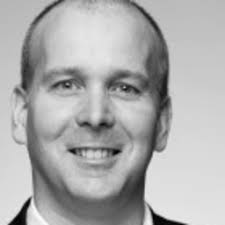Eileen Furlong (EMBL)
Eileen Furlong studied biochemistry at University College Dublin, Ireland, where she obtained her Ph.D. in the regulation of immediate early response genes. She then moved to developmental biology during her postdoctoral studies at Stanford University. She became a group leader at the European Laboratory for Molecular Biology (EMBL) in Heidelberg in October 2002. Since 2009, she is head of the Genome Biology Dept at EMBL, and Senior Scientist. She is an advanced ERC investigator, elected member of EMBO and a member of the Scientific advisory board of the Curie and CRG institutes.
Her research spans the areas of transcription/chromatin regulation and developmental biology using the integration of genetics, genomics and computational biology. In particular, her laboratory dissects general principles by which developmental enhancers function and how robustness is imparted within developmental programs. They investigate how natural sequence variation perturbs genome regulation, leading to specific phenotypes. The work combines single-cell genomics, genetics, imaging and computational approaches to understand these processes, including the development of new genomic methods within the context of a multicellular embryo.
Rob Russell (BioQuant)
Prof. Robert Russell is the Co-director of Bioquant and Professor of Protein Evolution at Heidelberg University. He studied Chemistry at Queen’s University in Canada, did a D.Phil in Biochemistry at Oxford, and a post-doc at the Imperial Cancer Research Fund, London. He has over 20 years of experience in computational biology and has worked in Academic Institutions (Universities of Oxford & Heidelberg), Research Centres (ICRF UK, EMBL) and the Pharmaceutical Industry (SmithKline Beecham Pharma plc). He has been a deputy coordinator and work package leader on EU projects Syscilia (FP7) and 3DRepretoire (FP6), editor of several academic publications, and a consultant for a variety of Pharmaceutical and Biotechnology companies.
His research is primarily focused in deciphering the mechanisms by which proteins recognize other molecules and ultimately to combine these mechanisms into models of molecular machines, pathways and larger biological systems. Besides, his group works on biological networks to predict a variety of biological phenomena from phosphorylation events, to chemical toxicity in humans. They adopt a number of bioinformatics methods, coupled to laboratory experiments mostly performing biochemistry and biophysics approaches to test various predictions. He is very active in collaborations with other groups in the Heidelberg area, but also with the rest of the world.

